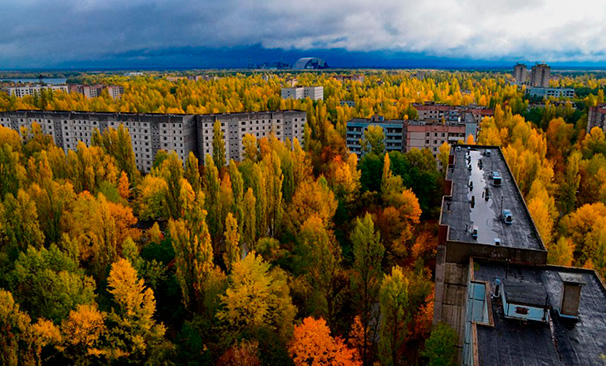Conference / workshop: Urban narratives about nature. Toxic nightmares, green utopias and dreams of control
Conference / workshop 19-20.05.2022 / 10'30h - 18'45h
Centre d'Arts Santa Mònica [La Rambla, 7, 08002 Barcelona]
General and multidisciplinary public
Activity open to all and free of charge with limited capacity
By: Institut d’Història de la Ciència (IHC-UAB)
In collaboration with:
Projecte PID2019-106208GB-I00 / Ministerio de Ciencia e Innovación; Plataforma Vértices; Science Museum London, Social FIlm Festival

More than half of the Earth population lives nowadays in cities. Finding ways to cope with the challenge of urban growth has become of the utmost importance in an age in which human activity is severely altering the Earth system. As living conditions worldwide suffer from a steady increase in environmental issues, historical inquiry provides useful reflections about vital concerns and thus new perspectives on the present.
This workshop aims at generating and debating specific knowledge concerning processes of construction and management of natural history and environmental narratives. Understanding that the city and the countryside can only be understood through one another and from a global perspective, it will focus on urban-based production and circulation of such narratives, primarily in Spain and Great Britain between the 1950s and the 1980s, where we will look at the role of actors, spaces, discourses, and practices involved in the construction of ways in which nature is represented according to strategically situated interests and criteria.
Talks will mainly deal with media, broadly understood, including television and film, the press (general and academic), literature, comics, museums, festivals, and summer nature camps. We thus will explore, in a context of rise of the natural sciences as a noteworthy field of socio-political negotiation worldwide, and with natural history television swiftly becoming a leading source of both information and entertainment at the time, the development, acceptance, resistance and re-signification of symbolic and material resources constituting views of nature and the environment in academic, policy-making and activist circles, and always considering the power relations involved between urban and rural contexts.